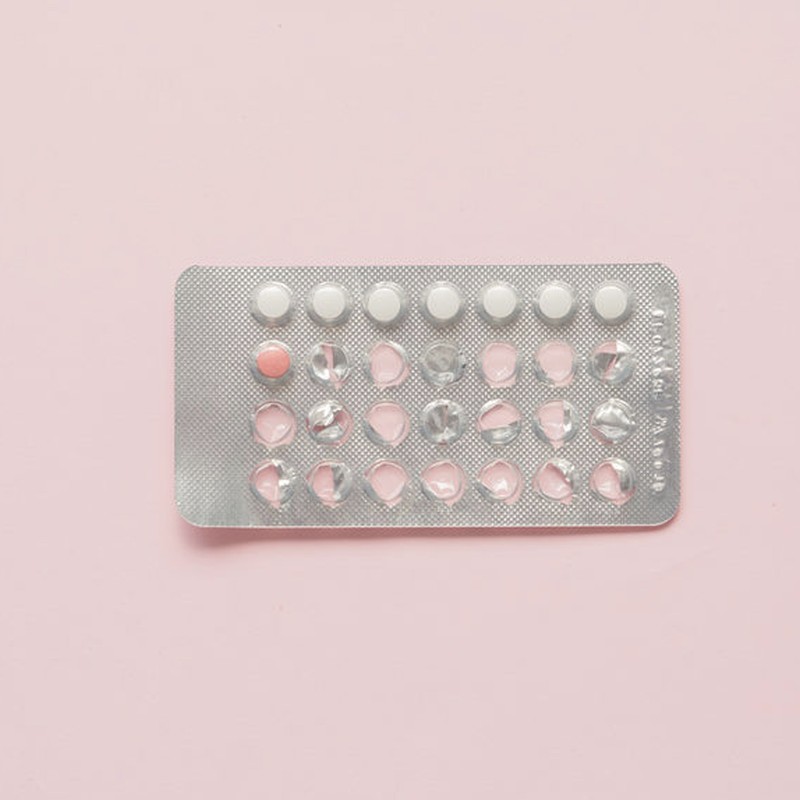8 Signs Your Birth Control Pill Isn’t Right For You
1. You’re Having Major Mood Changes
After years of insistence from millions of women, claims that the pill can affect mental health were finally proven last year, with hormonal birth control found to “reduce general well-being in women”.
One study also found that while many women reported an increase in depression, anxiety, and panic attacks while on the pill, they didn’t feel taken seriously when they reported these symptoms to their doctor. Frustratingly, it’s not yet known exactly why these side-effects occur, but it’s thought that progestin (the synthetic progesterone in hormonal birth control) is a factor.
What to try instead: If you’re experiencing poor mental health, your first port of call should always be to see your GP. But if you believe it could be linked to your pill, and they’re not offering advice, it’s worth speaking to a sexual health specialist too – as they will be able to prescribe hormonal birth control with lower levels of progestin, or recommend a non-hormonal method that may work for you.
2. You’re Feeling Puffy Or Bloated
While it’s true high levels of oestrogen (and synthetic oestrogen) can cause an increase in appetite, today’s modern pills contain such small doses that there’s no current research to support the theory that taking them causes women to gain fat. However, synthetic oestrogen has been linked to fluid retention, which could be the reason so many women report feeling ‘puffy’ or bloated when taking combined-pills, along with experiencing a slight increase in weight due to the extra water.
What to try instead: Combined pills containing drospirenone, such as the brands Yasmin and Yaz. This new-gen form of progestin can increase potassium levels in the blood, acting as a diuretic to flush out water retention. If you’re concerned about maintaining a healthy weight, it’s worth noting that the Depo-Provera shot (aka, the birth control injection) has been linked to significant weight gain, so isn’t suitable for everyone.
3. You’ve Lost Your Libido
The pill has been linked to a reduction in women’s testosterone levels, which play a major part in our sex drives. It can decrease testosterone by two separate mechanisms – both by stopping the ovaries from making the hormone and by increasing the levels of sex hormone binding globulin (SHBG), which binds to testosterone, rendering it unavailable for use. While this doesn’t always translate to a lowered libido (at present, scientific evidence is conflicting as to whether contraceptives affect sex drive), anecdotal evidence suggests it does for many women.
What to try instead: Talk to your doctor about switching to a birth control method with more progestin (which can mimic testosterone) or a non-hormonal method altogether, like the copper IUD.
4. You’re Dealing With Adult Acne
As the pill lowers testosterone levels, and testosterone is one of the biggest hormonal culprits when it comes to acne, it’s often prescribed to women with skin issues. But, when it comes to busting blemishes, not every pill is created equal – and some (namely progesterone-only pills) have even been found to worsen acne due to their higher androgen content (androgens convert metabolically to testosterone).
What to try instead: Combined pills containing drospirenone – like Yaz and Yasmin – which have anti-androgenic properties and may help with testosterone-related acne (along with excess hair growth). Pills containing levonorgestrel – such as Microgynon – have also been linked to an improvement in skin health.
5. You’re Suffering From Migraines Or Vision Changes
The NHS stresses that women who have severe or regular migraine attacks – especially if they experience ‘aura’ or warning sign beforehand – shouldn’t take birth control pills, as research shows they have a higher risk of blood clots and stroke. So if you’ve recently started getting migraine headaches and haven’t told your GP, it’s important you make them aware.
What to try instead: The Migraine Trust recommends changing to a different type of pill with a different dose of ethinyloestradiol and/or a different type of progestin. The charity also advise that taking the pill continuously without a break can also help reduce attacks. Alternatively, non-hormonal methods of birth control, like the copper IUD or condoms may be a safer bet
6. You’re Experiencing Breakthrough Bleeding
If you’ve recently switched birth control, breakthrough bleeding may occur for several months, as your body adjusts to the new levels of hormones, but if you’ve been on it for a while, it’s essential you see your doctor – as the bleeding could be a symptom of infection or condition such as endometriosis or uterine fibroids. The progestin-only pill, also known as the mini pill, has also been linked to unpredictable bleeding patterns in some women.
What to try instead: If you’re otherwise healthy, have been on your progestin only pill for a few months, always ensure you take it at the same time every day, and are still experiencing bleeding, it could be worth trying the combined pill, which has a slightly higher dose of hormones.
7. You Can Never Remember To Take It
Tried setting alarms, Post-It notes and keeping your pills by your nightstand and still find yourself forgetting, a more permanent type of birth control could be your best. Or if you’re strict about taking it daily, but simply struggle to take it at the same time each day, trying a different type of pill may give you more protection.
What to try instead: The implant, the injection, hormonal IUS and non-hormonal IUDs are all effective contraceptive methods that last for months or years. Three-hour progestin-only pills (which have to be taken within three hours of the same time each day to be effective) could be swapped for a 12-hour progestin only pill, or the combined pill.
8. You’ve Been Diagnosed With A New Health Condition
Along with severe migraines, the NHS advises women with myriad other health conditions not to take the pill. These include breast cancer, liver or gallbladder disease, diabetes with complications, a heart abnormality or heart disease, high blood pressure, a stroke and thrombosis (even having a close family member who has had a blood clot under the age of 45 could make taking the pill dangerous). Some medicines (including certain antibiotics and epilepsy drugs) also interact with the pill, meaning it doesn't work properly – so always check the leaflet in your prescription.
What to try instead: If you’re diagnosed with a new condition, always flag to your doctor that you’re taking the pill, and they’ll be able to advise you if it’s safe, or suggest an alternative form of birth control.
For a complete guide to the different types of contraception available, visit NHS.UK
DISCLAIMER: We endeavour to always credit the correct original source of every image we use. If you think a credit may be incorrect, please contact us at info@sheerluxe.com.






